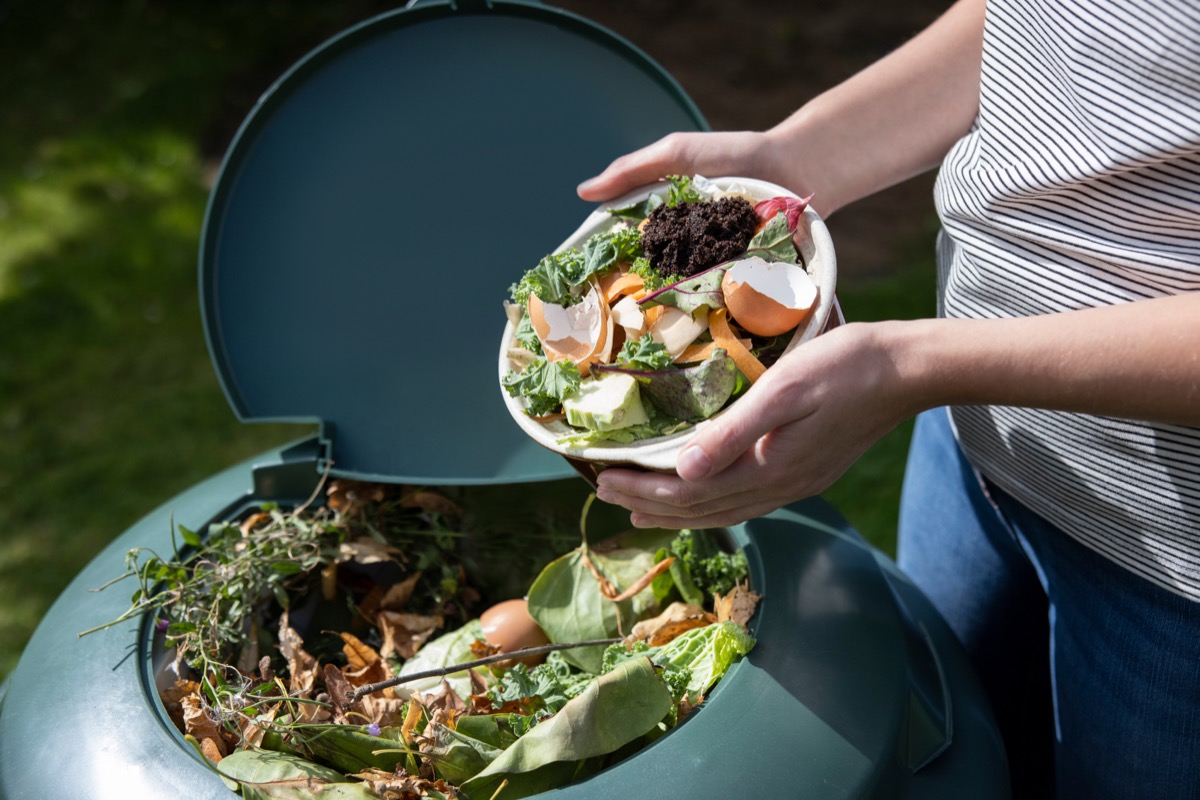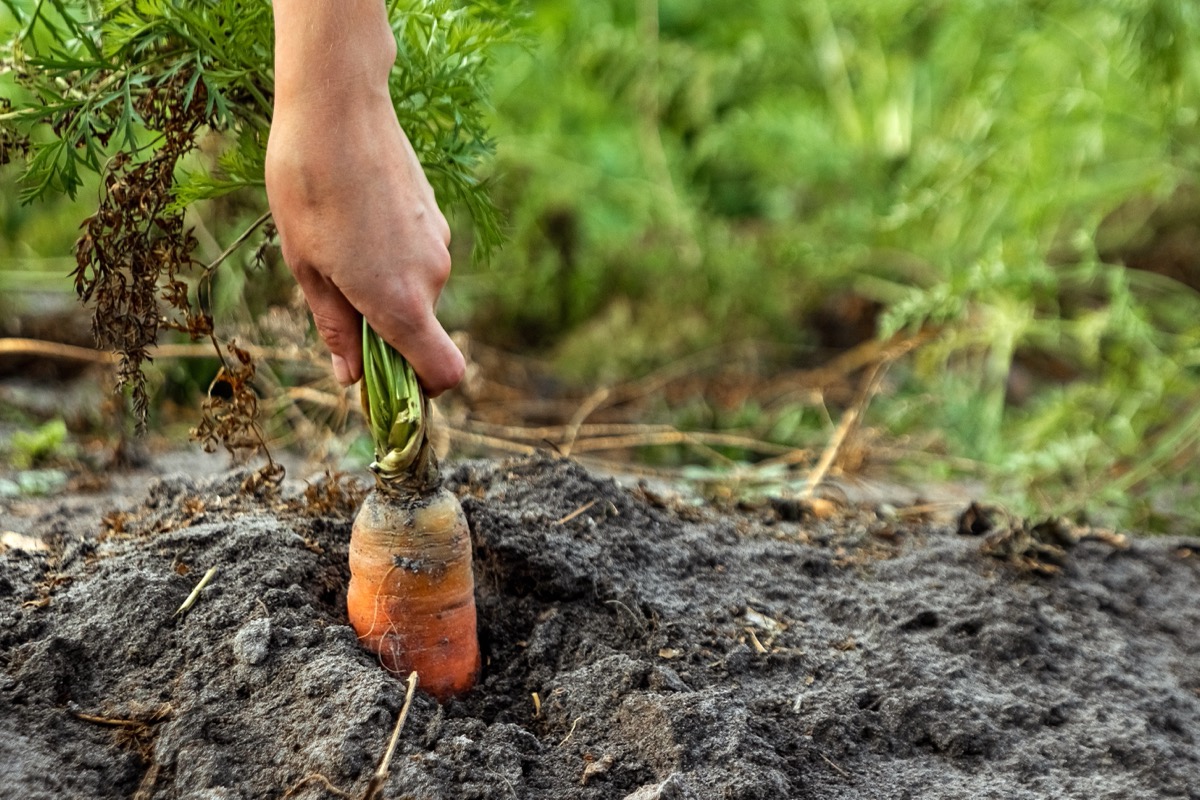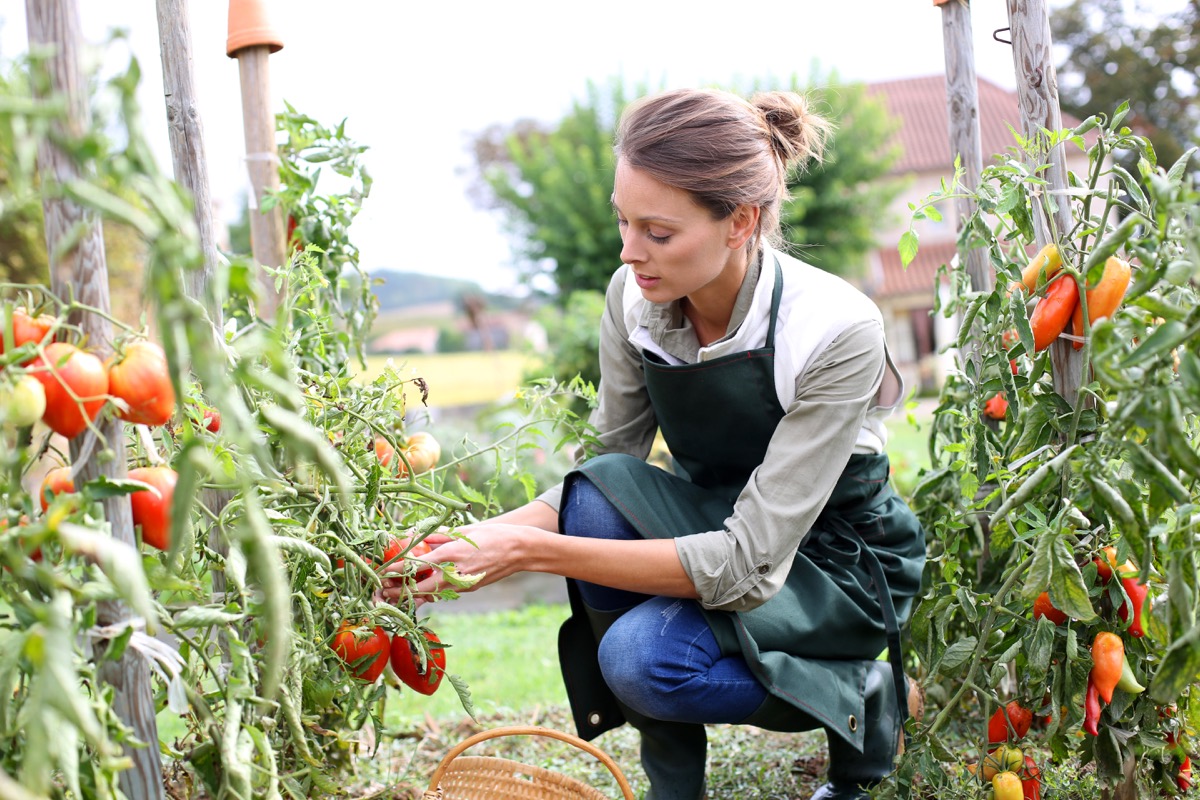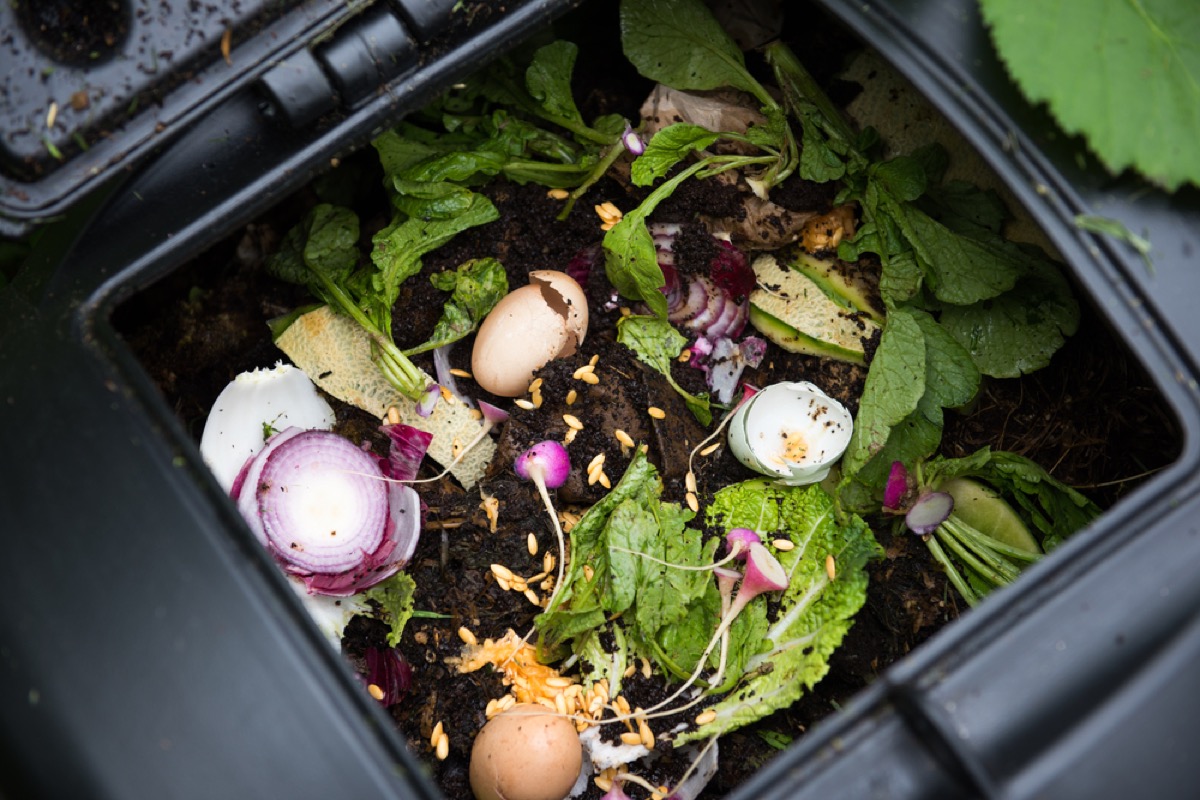RELATED: If You’re Over 65, Never Drink This While Eating, New Study Says. While making compost from food scraps may be an eco-friendly way to grow your own food, adding the wrong ingredients to the mix could potentially jeopardize your health. “Meat, bones, and dairy products don’t belong in a typical household compost pile and can introduce harmful bacteria and attract pests to your soil and gardens,” says Darby Hoover, a senior resource specialist at the Natural Resources Defense Council (NRDC). Hoover additionally notes that “the added fat and grease from those types of products can also clump things together and prevent much-needed airflow.” For the latest health and safety news delivered straight to your inbox, sign up for our daily newsletter! A 2012 review of research published in the journal Foodborne Pathogens and Disease found that there had been multiple cases of salmonella internalized into plants through contamination in growing conditions.ae0fcc31ae342fd3a1346ebb1f342fcb Salmonella was found in the roots of lettuce, seedlings of radishes and lettuce, barley roots and shoots, and all major tissues of peanuts—however, all of the aforementioned crops had been grown hydroponically, meaning no soil had been used. The study’s researchers concluded that salmonella contamination via a plant’s flesh through soil was unlikely. While soil may not be a common culprit when it comes to salmonella contamination, the dangerous bacteria can be introduced into crops during the harvesting period. A 2012 study published in the Annual Review of Food Science and Technology found that the pathogens like salmonella can be introduced into produce due to tiny cuts in the surface of their exterior tissues during the harvesting process. In a study published the same year in the International Journal of Microbiology, researchers discovered that cantaloupes that came in contact with contaminated soil bore detectable salmonella on their rinds, which could be introduced into the fruit’s flesh if it were subsequently cut. While not introducing animal products into your compost is your best bet for protecting your health, keeping your compost at an adequate temperature—something easily measured with a compost thermometer—can also help. According to a 2012 study published in the International Journal of Microbiology, salmonella in compost was inactivated after just 24 hours in a 140-degree Fahrenheit environment, but survived for three full days in an environment that was just 18 degrees cooler. RELATED: Never Eat Leftovers That’ve Been in the Fridge This Long, Experts Warn.



